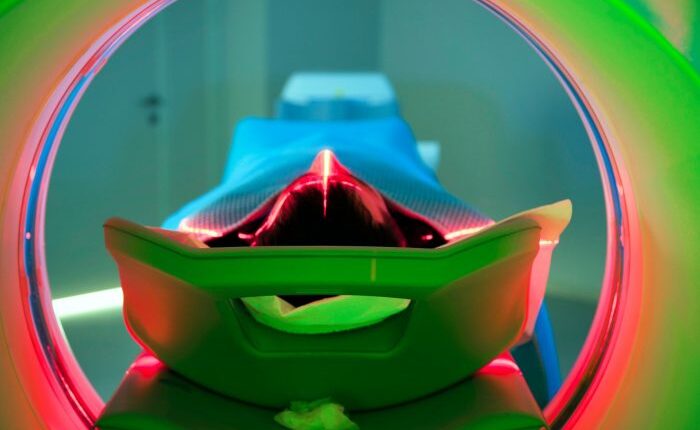The Precision Care Clinic will lead a game-changing research program in an emerging field of cancer care.
Personalised care tailored to cancer patients will soon be available through the new Precision Care Clinic at Prince of Wales Hospital set up in collaboration with NSW Health, UNSW Sydney and partners.
Precision medicine is an emerging scientific area which treats patients based on their individual makeup and genes. It takes into consideration their long-recognised clinical, lifestyle and environmental factors, strategically matching the right treatment or clinical trial to the right patient.
Cancer doctors and patients from across Australia will be able to seamlessly incorporate genomic results into care plans. This will allow them to comprehensively consider all current and emerging treatment options and their potential implications, including targeted therapy, clinical trials and cancer risk management.
The clinic has been carefully designed to support healthcare professionals currently facing gaps and challenges in providing precision care to their patients.
The project is a partnership between UNSW’s School of Population Health; Prince of Wales Hospital & South Eastern Sydney Local Health District; Omico; Cancer Voices NSW; Australian Catholic University; University of Sydney; and Macquarie University, to integrate precision medicine into routine cancer care.
Federal Minister for Health Mark Butler said the opening of the facility is a major step towards changing the way we approach cancer diagnosis, treatment, and prevention.
“This innovative cancer clinic will combine genomic research and implementation science to ensure the benefits of precision medicine are effectively translated into improved health outcomes for people with cancer across Australia,” he said.
NSW Minister for Health Ryan Park said he was proud NSW Health is a major player in this innovative form of healthcare.
“This initiative will ensure that patients receive the most targeted and tailored care to produce the most optimal health outcomes,” he said. “Clinicians and patients will be converging from across the country at this hub to access this precision care and incorporate it into their treatment plans.”
Translating genomics-informed treatment
UNSW’s School of Population Health Scientia Associate Professor Natalie Taylor said the research was motivated by the need to rapidly translate genomics-informed treatment and prevention strategies into publicly available healthcare, support clinicians to implement the latest precision research evidence, and improve care coordination for patients.
“The initiative is built on the latest clinical evidence and research, with careful consideration of the barriers that patients can face when receiving cancer care,” she said. “It will be supported by a digital evidence-driven data platform which will enable clinicians to access rapid precision cancer treatment and prevention decision support for their patients.
“Researchers are working closely with doctors and their patients to ensure that their expectations and needs are captured and used to continuously refine the clinic. Designing the clinic together enables the patients to feel like they are contributing and not just a number.”
The initiative is part of a five-year commitment from the Federal Government to establish multiple precision care clinics across Australia through a $5.8 million grant from the Medical Research Future Fund Rapid Applied Research Translation scheme.
NSW Minister for Medical Research David Harris said investment in medical research programs like precision medicine is vital.
“The Precision Care Clinic will see experts in precision medicine research approaching cancer diagnosis and treatment in a whole new way,” he said. “Starting here in NSW at the Prince of Wales Hospital, this new approach has the potential to transform cancer healthcare in Australia.”
Director of Cancer and Haematology Services at Prince of Wales Hospital, Professor Boon Chua said the Prince of Wales Hospital is proud to be playing an important role in embedding precision oncology within our health services.
“Our patients will now be able to access their precision cancer information, advice and care all in the one place, without having to navigate their way through multiple clinics and specialists,” she said.
“The public clinic will provide formal processes that enable specialists in oncology and genetics to make evidence-informed decisions together with the aim of improving patient experiences and health outcomes.”


Comments are closed.